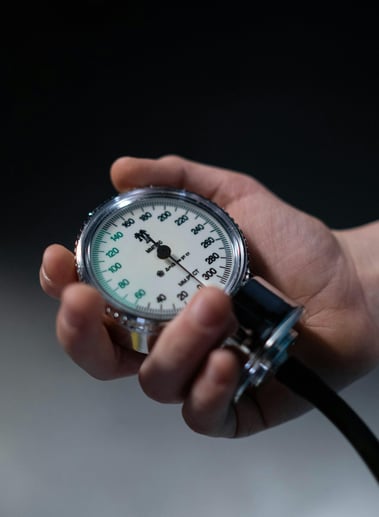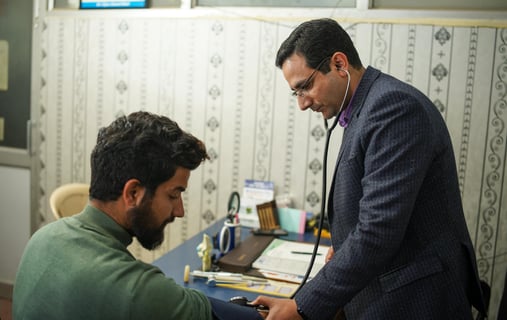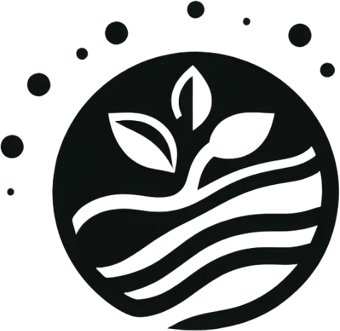Hypertension Alert: Tips for Prevention and Care
Hypertension, or high blood pressure, is often called the "silent killer" because it rarely shows symptoms but can lead to serious health complications like heart attacks, strokes, and kidney failure. Understanding how to manage and prevent hypertension is vital for a healthier life. This post will explore practical tips for prevention and care, supported by scientific evidence.
Health Is Life
1/6/20252 min read
What is Hypertension?
Hypertension occurs when the blood pressure in your arteries is consistently too high. Normal blood pressure is below 120/80 mmHg. When it exceeds 130/80 mmHg, it is considered hypertension. If left untreated, this condition can damage vital organs, including the heart, brain, and kidneys.
Why Should You Take Hypertension Seriously?
Hypertension affects over 1.28 billion adults worldwide, according to the World Health Organization (WHO), with many unaware of their condition. It significantly increases the risk of cardiovascular diseases, which are the leading cause of death globally.
Prevention and Management Tips
Monitor Your Blood Pressure Regularly
Regular monitoring helps detect hypertension early. Home blood pressure monitors are widely available and easy to use.
Adopt a Healthy Diet
Follow the DASH diet (Dietary Approaches to Stop Hypertension), which emphasizes fruits, vegetables, whole grains, lean proteins, and low sodium. A meta-analysis published in the Journal of the American College of Cardiology found the DASH diet significantly reduces blood pressure.
Reduce Salt Intake
Excessive sodium increases blood pressure. WHO recommends consuming less than 5 grams of salt per day to lower the risk of hypertension.
Exercise Regularly
Physical activity strengthens the heart, improving its efficiency in pumping blood. The American Heart Association suggests at least 150 minutes of moderate aerobic exercise per week.
Maintain a Healthy Weight
Obesity is a significant risk factor for hypertension. Losing even 5-10% of body weight can lead to substantial blood pressure reductions.
Limit Alcohol and Quit Smoking
Excessive alcohol and smoking damage blood vessels and elevate blood pressure. Moderation and cessation are essential.
Manage Stress
Chronic stress contributes to hypertension. Practices like meditation, yoga, and deep breathing exercises can help lower stress levels.
Take Medication as Prescribed
If lifestyle changes are not enough, medications prescribed by a healthcare professional can help control blood pressure. Adherence to treatment is crucial.
Signs You Might Have Hypertension
Although hypertension is often asymptomatic, severe cases may cause:
Headaches
Shortness of breath
Nosebleeds
Chest pain
If you experience these symptoms, seek medical attention immediately.
Conclusion
Hypertension is a manageable condition with the right lifestyle changes and medical care. Regular monitoring, a healthy diet, exercise, and stress management are powerful tools for prevention and control. Don’t wait for symptoms to appear—take proactive steps to protect your health today.
Scientific References
Whelton, P. K., et al. (2018). 2017 ACC/AHA/AAPA/ABC/ACPM/AGS/APhA/ASPC/NMA/PCNA Guideline for the Prevention, Detection, Evaluation, and Management of High Blood Pressure in Adults. Journal of the American College of Cardiology.
Sacks, F. M., et al. (2001). Effects on blood pressure of reduced dietary sodium and the Dietary Approaches to Stop Hypertension (DASH) diet. The New England Journal of Medicine.
World Health Organization (2021). Hypertension fact sheet. WHO.
American Heart Association (2019). Recommendations for physical activity in adults. AHA.




